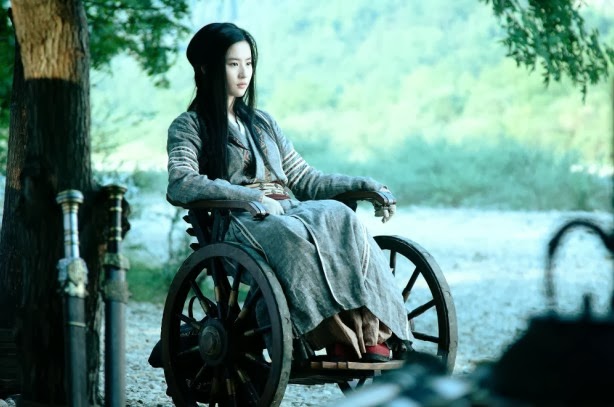Hong Kong’s Gordan Chan wants to
redo the X-Men as a wuxia franchise
The gimmick of both The Four and The
Four 2 is taken directly from Wong Swee Onn’s wuxia novel, i.e. the
imperial Chinese equivalent of the Special Crimes Unit is staffed
solely by top kungfu experts. The twist provided by Gordon Chan is to
portray the kungfu experts, the mysteries they solve, and their
antagonists as straight out of a Marvel superhero comic book. There’s
even an attempt to mimic the Marvel Studios “phase 2” gimmick
with the supervillain team enacting their nefarious scheme over the
course of several instalments.
Now as far out as this cross-genre
premise sounds, it could work. After all, Kungfu Panda is basically a
Shaw Brothers kungfu flick done as an animated slacker comedy. What
Gordon Chan didn’t count on was that the film would be written and
directed by Gordon Chan. While having over 20 years as a writer and
director, The Four was plagued by pacing issues, gaping plot holes,
and an incoherent script (I dare you to name me “The Four”). The
Four 2 has better pacing since Chan apparently discovered the secret
of scripting an action film to setpieces, and introducing a mystery
that has existential ramifications for the superhero team.
Yet Gordon Chan forgets one important
thing he did right in the first film: if your movie franchise is
based on a team of mutant detectives, you’d better make them use
their superpowers outside the obligatory fight scenes (otherwise it’s
just a plan old wuxia), and you’d better show them solving the
mystery with their superpowers. While pacing problems,
setpiece-propelled narratives, and clunky writing can be forgiven,
this particular flaw sticks out the most and diminishes what should
have been an unquestionably superior sequel.


No comments:
Post a Comment